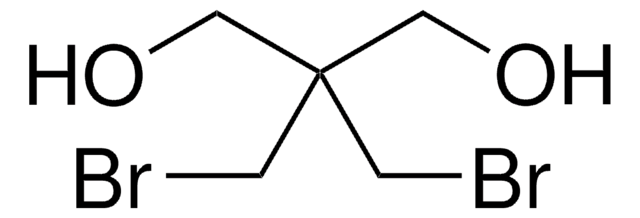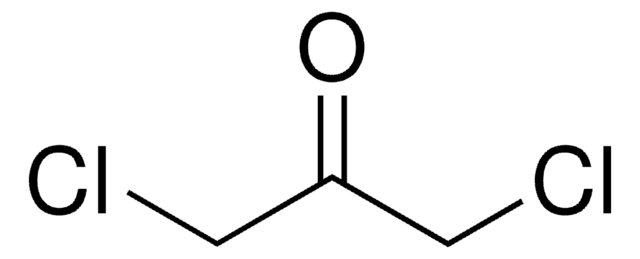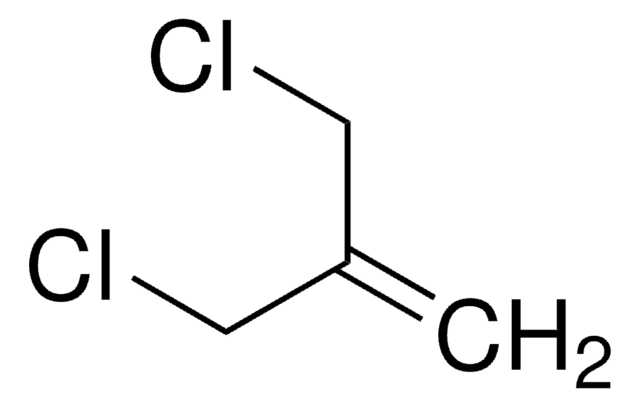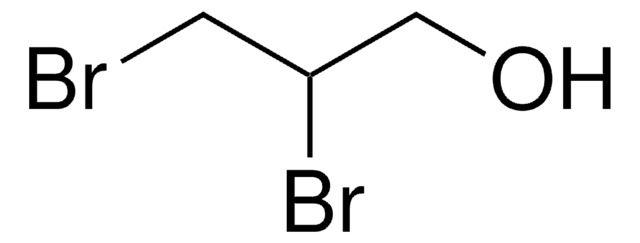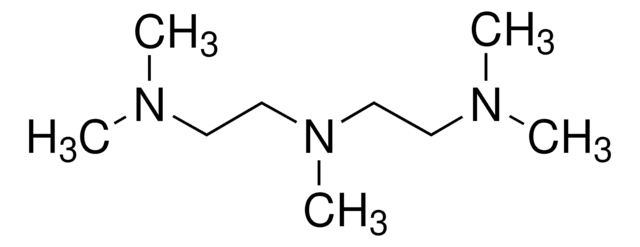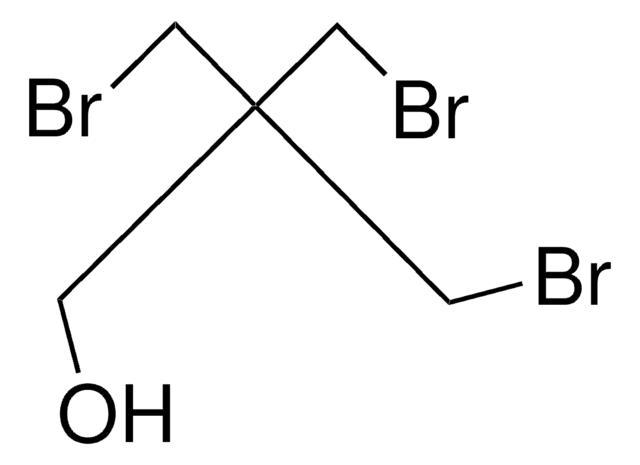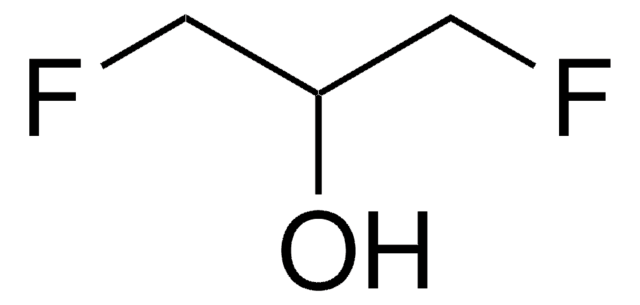372404
1,3-ジブロモ-2-プロパノール
technical grade, 95%
別名:
α,γ-Dibromohydrin, α-Dibromohydrin, 1,3-Dibromo-2-hydroxypropane, 1,3-Dibromohydrin, 1,3-Dibromopropanol, 2-Hydroxy-1,3-dibromopropane, Glycerol α,γ-dibromohydrin, Glycerol 1,3-dibromohydrin
About This Item
おすすめの製品
グレード
technical grade
品質水準
アッセイ
95%
フォーム
liquid
屈折率
n20/D 1.552 (lit.)
bp
82-83 °C/7 mmHg (lit.)
密度
2.136 g/mL at 25 °C (lit.)
官能基
bromo
hydroxyl
SMILES記法
OC(CBr)CBr
InChI
1S/C3H6Br2O/c4-1-3(6)2-5/h3,6H,1-2H2
InChI Key
KIHQZLPHVZKELA-UHFFFAOYSA-N
類似した製品をお探しですか? 訪問 製品比較ガイド
関連するカテゴリー
詳細
アプリケーション
- To prepare the thioether ligand, used in the synthesis of palladium-phosphorus/sulfur nanoparticles.
- Preparation of 2-(alkoxy)propenyl bromide.
- Synthesis of 1,3-propanediamine derivatives connected to carbohydrates (sugar-pendant diamines).
- Chemical crosslinking of nine single substitution cysteine mutants of staphylococcal nuclease.
- Preparation of 1,3-dinitrooxy-2-propanol, via reaction with AgNO3 in MeCN at 80°C.
シグナルワード
Danger
危険有害性の分類
Acute Tox. 3 Oral - Carc. 2 - Eye Irrit. 2 - Flam. Liq. 3 - Skin Irrit. 2 - STOT SE 3
ターゲットの組織
Respiratory system
保管分類コード
3 - Flammable liquids
WGK
WGK 3
引火点(°F)
116.6 °F - closed cup
引火点(℃)
47 °C - closed cup
個人用保護具 (PPE)
Eyeshields, Faceshields, Gloves, type ABEK (EN14387) respirator filter
適用法令
試験研究用途を考慮した関連法令を主に挙げております。化学物質以外については、一部の情報のみ提供しています。 製品を安全かつ合法的に使用することは、使用者の義務です。最新情報により修正される場合があります。WEBの反映には時間を要することがあるため、適宜SDSをご参照ください。
消防法
第4類:引火性液体
第二石油類
危険等級III
非水溶性液体
Jan Code
372404-25G:
372404-5G:
372404-VAR:
372404-BULK:
この製品を見ている人はこちらもチェック
ライフサイエンス、有機合成、材料科学、クロマトグラフィー、分析など、あらゆる分野の研究に経験のあるメンバーがおります。.
製品に関するお問い合わせはこちら(テクニカルサービス)

